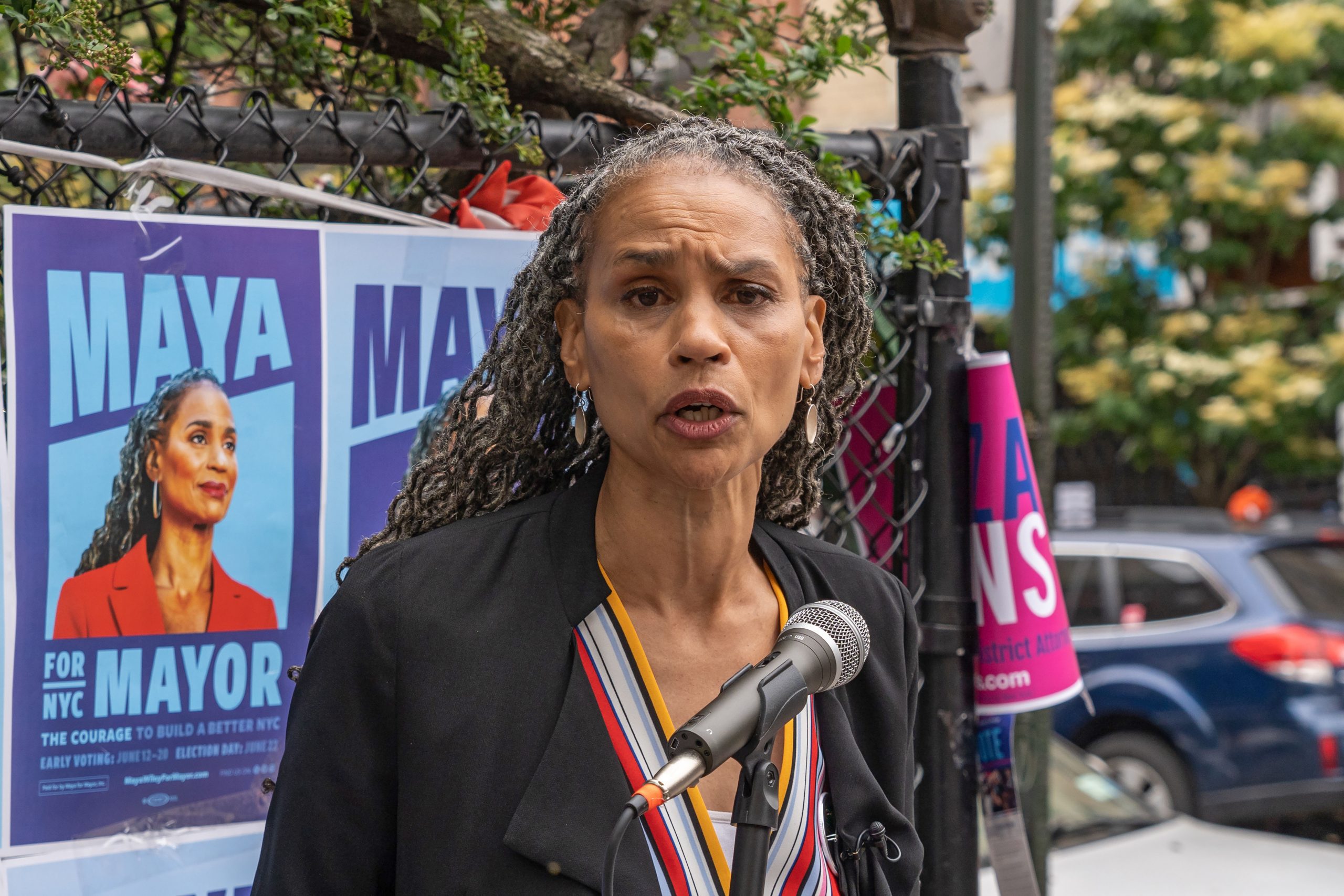Limousine Liberals and Brooks Brothers Populists

Cartoonist and columnist Frederick Theodore “Ted” Rall III is in the Wall Street Journal this morning, writing “In Defense of Limousine Liberals,” a less than complimentary label for which he borrows David Callahan’s definition: “hypocritical wealthy do-gooders insulated from the negative fallout of their bad ideas.”
The limousine liberal attracting Rall’s immediate attention is Maya Wiley, a failed progressive candidate for mayor of New York City. Ms. Wiley, daughter of the late professor and activist George Wiley, earned degrees at Dartmouth College and Columbia Law School before going on to a lucrative career in such suspect fields as professional activism, higher education, and Bill de Blasio’s administration. With typical annual salaries comfortably in the six-figure range, and a Prospect Park estate valued at $2.7 million, Wiley hardly has the working-class bona fides one might like to see from a candidate with her professed priorities.
No matter, Rall insists. While neglecting to make any actual argument to this end, he seems certain that there’s nothing wrong or hypocritical about, for instance, decrying inequality in the educational system—and demanding a reckless overhaul of public schools in the names of “equity” and “justice”—while simultaneously placing one’s own children safely in expensive private schools.
Rall’s archetype of this admirable and totally-not-a-hypocrite limousine liberal is the late Massachusetts senator Edward Moore “Ted” Kennedy, who, Chappaquiddick notwithstanding, can hardly be regarded as a paragon of the common virtues of the American underclass. Rall recalls Kennedy’s militancy on behalf of forced busing—the top-down integration policy that, perhaps more than any other action, catalyzed the downfall of America’s noblest city—despite his refusal to place his own children in Boston public schools. Whole communities were destroyed by the implementation of busing and the ensuing chaos, educational outcomes plummeted citywide, and as the working-class communities of Boston suffered a blow from which they would never recover, the Kennedys and others who had demanded it all in the name of progress remained entirely untouched.
How exactly this is not hypocritical—to say nothing of why we should go so far as to venerate Kennedy and his ilk—Rall does not venture to explain.
But the most important question here is actually more basic than whether it’s right for limousine liberals to escape the “negative fallout of their bad ideas.” Why are their ideas bad in the first place?
One major reason is the aforementioned insulation: Elites are cut off not just from the repercussions of unsound political action, but from the on-the-ground experiences that would inform sound political action. It’s not just that they have no skin in the game, though this in itself is a moral and political hazard; it’s that the game is so utterly foreign to them that they’re trying to referee without even knowing how it’s played.
Politics is neither abstract nor scientific. Real politics—especially good politics—is organic. The more detached from people and place it becomes, the less its proposed solutions are actually going to line up with the problems at hand. A Ted Kennedy who lived in South Boston and sent his kids to South Boston High would have held the opposite opinions on busing not just out of self-interest, but because his politics would have been informed by experience of the community rather than by the impersonal dictates of social scientists and social engineers.
We need not limit ourselves to hypotheticals. One of the most prominent and persistent opponents of forced busing was state senator William Bulger, who had been born and raised in the neighborhood he served, and opposed busing because he—unlike detached suburbanites like Michael Dukakis and government functionaries like Judge W. Arthur Garrity—knew that it simply wouldn’t work. Bulger, who is living in retirement in (where else) South Boston, was one of the last notable members of a Democratic tradition whose politics were learned not at Dartmouth or B.U., but among the demos for whose good they wielded power—that is, the precise antithesis of the limousine liberal. Now, as Democratic politicians and, consequently, the Democratic platform drift further and further from the working-class base, Republicans have both the opportunity and the responsibility to take up that torch.
Class traitors—something like the limousine liberals, but with more self-awareness—serve a purpose. Plenty of those left behind by the gentrified Democratic party were brought into the Republican fold by the billionaire son of a Manhattan real estate mogul. The apparent heir to the populist wing of the GOP is a banker’s son who went from undergrad at Stanford to a J.D. at Yale Law. The premier voice of the post-Trump, populist right is the preppy-dressing Tucker Swanson McNear Carlson. Such upper-crust champions of the underclass have been called everything from “Brooks Brothers populists” to, in the phrase of Substack blogger Curtis Yarvin, “Coriolanus conservatives.” We could not do without these people—nor would we want to. They are moving in the right ideological direction, and they exercise invaluable political influence in service of what are, by and large, the right ideas. But they can only take us so far.
If the Trump era affirmed one truth about electoral politics, it’s that the person matters much more than the platform. As Yarvin writes in explaining his terminology (taken from the “Shakespeare” play about the famous Roman defector), “Coriolanus makes a bad general of the Volscians—not because he is a bad general, but because he is not a Volscian, and does not understand the Volscian situation.”
If we are going to win—and especially to win in the places where we have not been winning, and where we badly need to—it will not be by descending and arguing really hard that our ideas are better than the alternative, but by showing those whom Rome would crush that we are Volscians, too. (Bonus points if it’s actually true.)
For that, neither Prospect Park nor Mar-a-Lago will do. Middletown might.
Comments